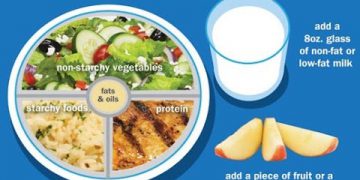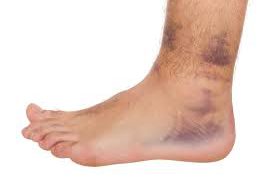Type 1 diabetes diet is an important diet for diabetes type 1 control. For all diabetics meal planning for diabetes control is a necessary step to maintain good health.
The body needs glucose to function properly but with type 1 diabetes the body either does not produce any insulin or it produces very little. This hormone is needed for the body to be able to utilise the glucose in the blood. Too much glucose creates one problem and too little create yet another problem.
The main concern for diabetics then is to find that delicate balance between the food that is eaten and the medication or insulin that has to be taken – to substitute the one that is not produced naturally by the pancreas.
Exercises do also play a role in type 1 diabetes diet planning and should be taken in consideration while creating the diabetic meal plan – exercise improves the body’s ability to absorb the glucose.
By eating and well balanced meal and doing at least thirty minutes of exercise daily can actually reduce the amount of daily insulin.
I know life is unfair sometimes as non-diabetics pancreas produces insulin as is required and automatically keeps the blood sugar levels to within normal levels. Type 1 diabetics have to self-administer the insulin without which the blood glucose will continue to rise in the blood stream.
It may seem like lots of work – well it is a lot of work but it can be done. By creating a diabetic meal plan and maybe a diabetic diary would life a bit more straight forward. These two ideas will help you to identify problems area in the type 1 diabetes diet or areas where you can improve diabetic control.
If the same amount of carbohydrates is eaten and the same amount of exercise then you may be able to determine the amount of insulin that is needed.
Since the vast majority of type 1 diabetes suffers are children you have to help them with the diabetic meal planning. Children with diabetes dietary needs will change as they get older therefore they should be carefully monitored.
Problems if proper diabetic meal planning is not kept
Complex Carbohydrates are essential for a diabetics’ diet – it is necessary for energy. Simple carbohydrates break down fast and dump excess glucose into the bloodstream. A careful balance of insulin, carbohydrates and exercise is needed to maintain optimal levels of glucose in the blood.
Not having a diabetic meal plan and varying your diet too widely from meal to meal or day to day may cause significant changes in blood glucose levels and make it extremely difficult to monitor your insulin requirement.
Useful diet for diabetes control – information from medlineplus
To maintain your weight, you can use the following formula:
- 10 calories per pound of desirable body weight if you are sedentary or very obese
- 13 calories per pound of desirable body weight if your activity level is low, or if you are over age 55
- 15 calories per pound of desirable body weight if you regularly do moderate activity
- 18 calories per pound of desirable body weight if you regularly do strenuous activity
Required activity levels:
- Low activity: No planned, regular physical activity; occasional weekend or weekly activity (such as golf or recreational tennis) is the only type of physical activity
- Moderate activity: Participating in physical activities such as swimming, jogging, or fast walking for 30 – 60 minutes at a time
- Strenuous activity: Participating in vigorous physical activity for 60 minutes or more at least 4 – 5 days per week
To achieve a balanced diet for diabetes control Type 1 diabetes diet should observe the following rules:
- Do not eat meat more than once a day. Eat fish and poultry more often than red or processed meats because they are less fattening.
- Avoid frying food. Fried food absorbs the fats from the cooking oils, increasing your dietary fat intake. Instead, bake or broil food. If you do fry, use polyunsaturated oils, such as corn oil.
- Cut down on your salt intake. Limit table salt, or flavour intensifiers that contain salt, such as monosodium glutamate (MSG).
- Include adequate fibre in your diet. Fibre is found in green leafy vegetables, fruit, beans, bran flakes, nuts, root vegetables, and whole-grain foods.
- Do not eat more than 4 eggs per week. Although they are a good source of protein, and they’re low in saturated fat, eggs are very high in cholesterol.
- Choose fresh fruit for dessert, rather than cookies, cake, or pudding.
- Eat a well-balanced diet. Too much of anything — calories or a particular type of food — has its drawbacks.
- Follow the recommendations of the food guide pyramid.
To successfully manage your weight, follow these basic diets for diabetes control guidelines:
- Eat a healthy – well-balanced diet.
- Balance physical activity with diet to maintain your desired weight. Aerobic exercise will help increase muscle tissue and burn calories. It could be combined with weight training for better results.
- Gradually adjust your eating habits to encourage a permanent lifestyle change. Counselling may be needed achieve behaviour modification and to change your diet.
- Avoid alcohol, or drink in moderation – the carbohydrates in alcohol must be counted also.












